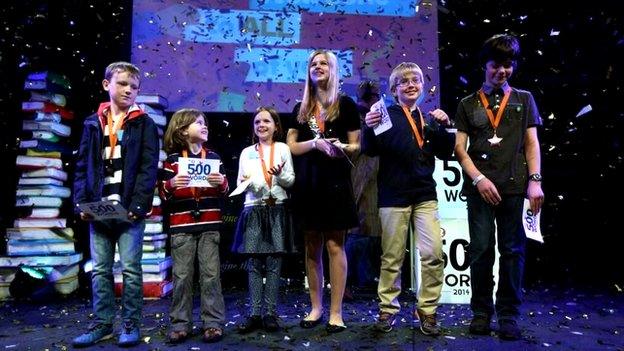Hashtag is 'children's word of year'
- Published
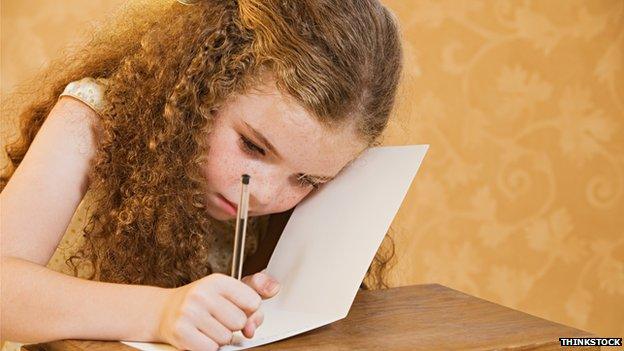
Popular themes included World War One, world events in Ukraine and Syria and Ebola
Hashtag has been declared "children's word of the year" by the Oxford University Press.
OUP analysed more than 120,421 short stories by children aged between five and 13 years old, submitted to the BBC's 500 Words competition.
According to the OUP, new technology is increasingly at the centre of the children's lives but how they are writing about it is changing fast.
Words including email, mobile and Facebook are in decline, it said.
They are being replaced by the likes of Instagram, Snapchat and emoji.
And the word television has now been superseded by phone.
The report also notes a sudden new arrival in children's sentences. The use of the hashtag symbol # to add an extra meaning or comment at the end of a sentence has become commonplace. #IblameTwitter #AndInstagram.
What girls are writing about
-
1. Fairy tales: princess, charming, unicorn
-
2. Royalty: coronation, Queen, majesty
-
3. Family: BFF, grandmother, aunt
-
4. Shopping: Prada, make-up, shopaholic
What boys are writing about
-
1. Dinosaurs: stegosaurus, Jurassic, raptor
-
2. Superheroes: Batcave, Gotham, Avengers
-
3. Football: Aguero, Neuer, Suarez
-
4. Science fiction: teleport, continuum, tardis
Vineeta Gupta at the Oxford University Press said: "This has been a significant change in usage in this year, 2015.
"Children have extended its [#] use from a simple prefix or as a search term for Twitter to an editorial device to add drama or comment."
Other words on the technological endangered list are iPod, mp3 and Blackberry. In their place are iPhone, chat app WhatsApp and messaging site ooVoo. #keepup
One of the most common plotlines in the short story competition was achieving sudden internet fame after posting a YouTube video.
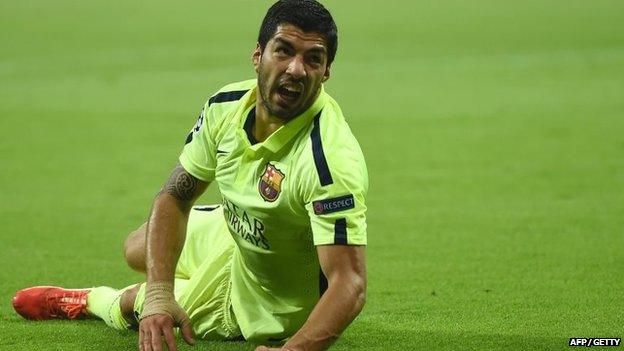
Many children made a portmanteau of Suarez and a stegosaurus to create a mutant monster
Rather than writing about watching videos, stories revolved around how many hits, shares and likes they were receiving for their own videos. #makesabetterstory
Some of the most popular characters were Cinderella, footballer Lionel Messi, Snow White, Adolf Hitler and Wayne Rooney.
What surprised researchers was how many children wrote using mythological characters such as Zeus, the Minotaur and Hercules. #theyloveZeus
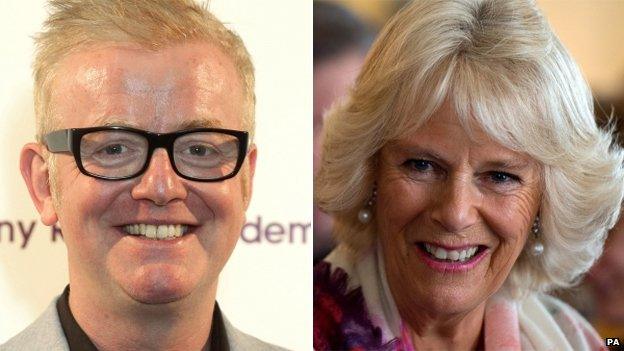
The Duchess of Cornwall is supporting the writing contest
As a source for stories, World War One was common and world events in Ukraine and Syria were both popular but far behind the most frequent current affairs topic, Ebola.
The search for a cure was one of the most regular plots.
New words also appeared. Among the crop of new inventions were wellysaurus, gloomful and Stegasuarez, a mutant monster hybrid of a Stegosaurus and footballer Luis Suarez. #itbites
The contest winners will be revealed on Friday on The Chris Evans Breakfast Show on BBC Radio 2 live from St James's Palace. The DJ has enlisted the support of the Duchess of Cornwall.
- Published19 January 2015
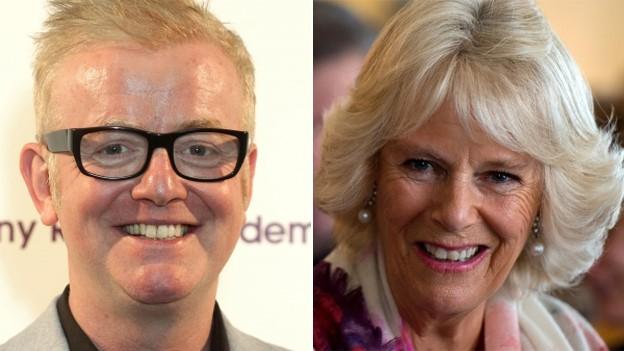
- Published30 May 2014
